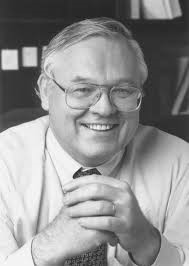Voters no longer are sought to provide approval of major capital projects–Community College development has sufficient funds from tuition and property taxes

Commentary
The historic view followed by public education institutions that voters must approve a major capital project via a General Obligation bond is no longer the Yavapai Community College philosophy. Because of its power to raise property taxes by a three member vote of the District Governing Board and increase tuition at will, the Community College is now able to build major capital projects without asking for voter approval. This is a huge change in philosophy and means that the Community College is now being run much like a private company. The only difference is that it has a constant stream of revenue coming from County property taxes and student tuition. Voters have lost almost total control over capital projects.
The old view is expressed in the Community College 1999 Master Plan. In that plan, the College wrote:
“As a public community college district, the primary mechanism for renovation and construction projects is the issuance of general obligation bonds approved by the voters of Yavapai County. However, the College’s goal is to maximize the use of other funding sources to support key elements of the Facilities Plan.”
The old philosophy is found throughout that plan. For example, funding for a new soccer field, a renovated baseball field, and new tennis courts was all to come from donated funds–not from taxpayers.
Under the new approach, the College has managed to carve out a budget from annual property taxes and tuition so that it can build without voter approval any capital project it fancies. (Once it was thought by some that using taxpayer money at a publicly funded institution for capital development was unethical.) For example, without voter approval, it announced a $119 million dollar development project that it intends to finance over ten years from 2014-2024. It never asked for voter approval.
As Dr. Wills stated at the February 2014 Board meeting where the ten-year plan was discussed: “We are not going out for a General Obligation bond” for any [of the ten-year development plan.]
Vice President Clint Ewell explained at the February, 2014 meeting where the money for the ten-year plan was coming. He said:
“Revenues are coming from property tax and savings that we have accumulated over the past few years. . . . On average we are reinvesting about $8 million dollars a year although it ranges as low as $6 million and as high as $12 million in a given year.” (February 2014 Governing Board.)
The implications of this major policy change and operation of the Community College, which began about seven years ago, is troubling. The College no longer needs to seek input from residents of the County before millions of dollars are invested in major development. It can invest in any project that it fancies knowing that voters would never approve it. Residents of Yavapai County are no longer in control of their County Community College. It has been turned over to bureaucrats who have had no serious opposition from the Governing Board in spending millions of dollars on plant development–rather than faculty salaries, more faculty, and better overall education. Hopefully, with two new members on the Governing Board, automatic rubber stamping of capital projects will end.
